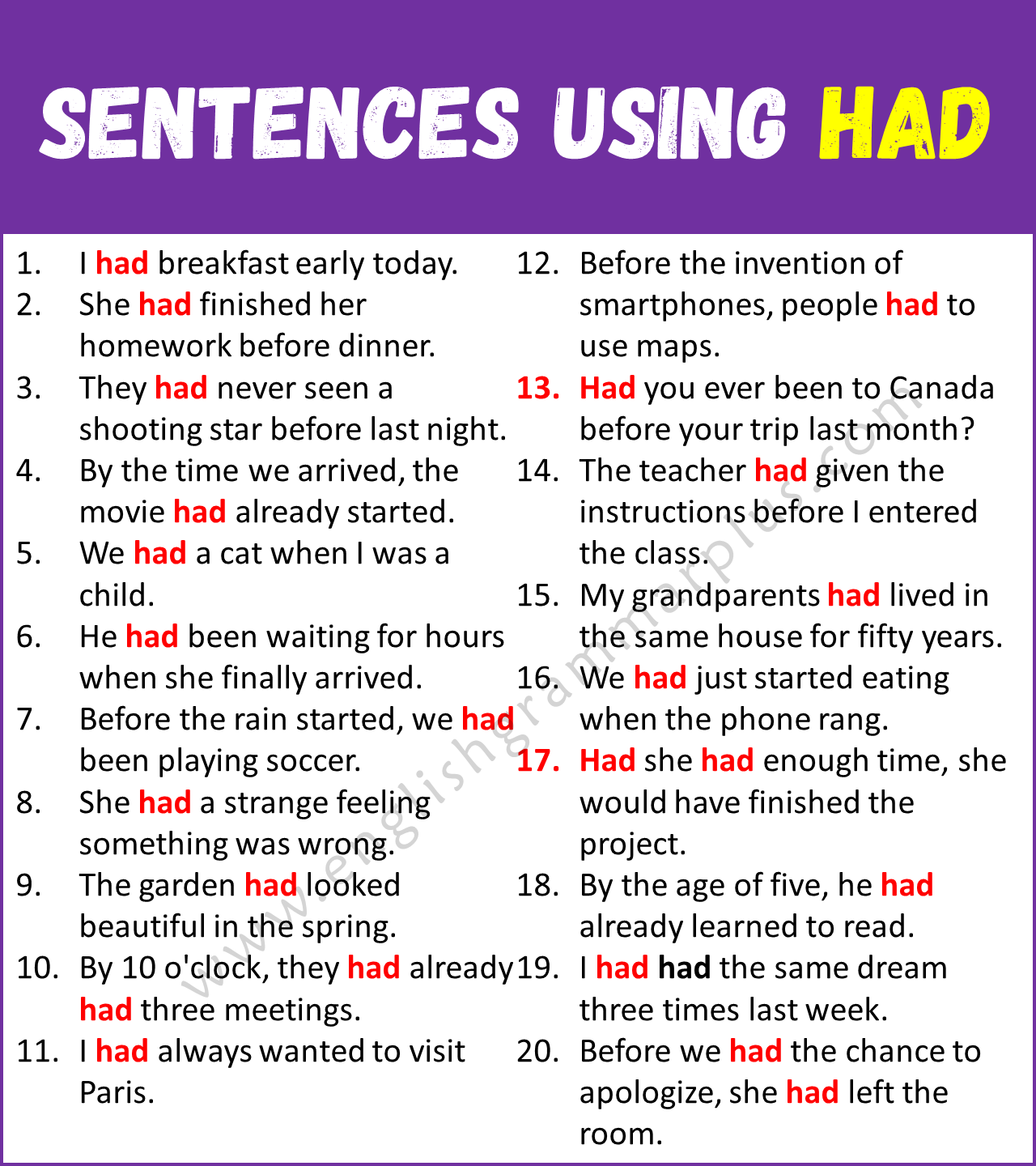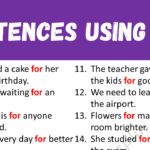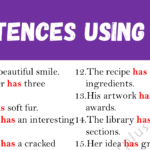In this useful lesson, we’re going to explore a small but mighty word: “had”. This word is like a key that can unlock the past in English. When you understand how to use it, you’ll be able to talk about things that happened before other things. It’s like having a time machine in your language toolbox!
Whether you’re just starting out with English or looking to polish your skills, this lesson will help you get a firmer grasp on expressing past events.
Correct Use of “HAD”
The word “had” is a form of the past tense and is used in several different ways in English. It can be part of the past perfect tense, showing that one action happened before another in the past. It can also be used to indicate possession in the past. Knowing when and how to use “had” can make your English sound more fluent and accurate. Here are some quick rules to help you use “had” correctly:
- Past Perfect Tense: Use “had” followed by a past participle verb to describe an action that occurred before another action in the past. For example, “She had left before you arrived.”
- Past Possession: Use “had” to talk about something you possessed or experienced in the past. For example, “I had a great time yesterday.”
20 Sentences Using “HAD”
- I had breakfast early today.
- She had finished her homework before dinner.
- They had never seen a shooting star before last night.
- By the time we arrived, the movie had already started.
- We had a cat when I was a child.
- He had been waiting for hours when she finally arrived.
- Before the rain started, we had been playing soccer.
- She had a strange feeling something was wrong.
- The garden had looked beautiful in the spring.
- By 10 o’clock, they had already had three meetings.
- I had always wanted to visit Paris.
- Before the invention of smartphones, people had to use maps.
- Had you ever been to Canada before your trip last month?
- The teacher had given the instructions before I entered the class.
- My grandparents had lived in the same house for fifty years.
- We had just started eating when the phone rang.
- Had she had enough time, she would have finished the project.
- By the age of five, he had already learned to read.
- I had had the same dream three times last week.
- Before we had the chance to apologize, she had left the room.
Remember, practice makes perfect! Try using “had” in your own sentences to describe past events and experiences.



